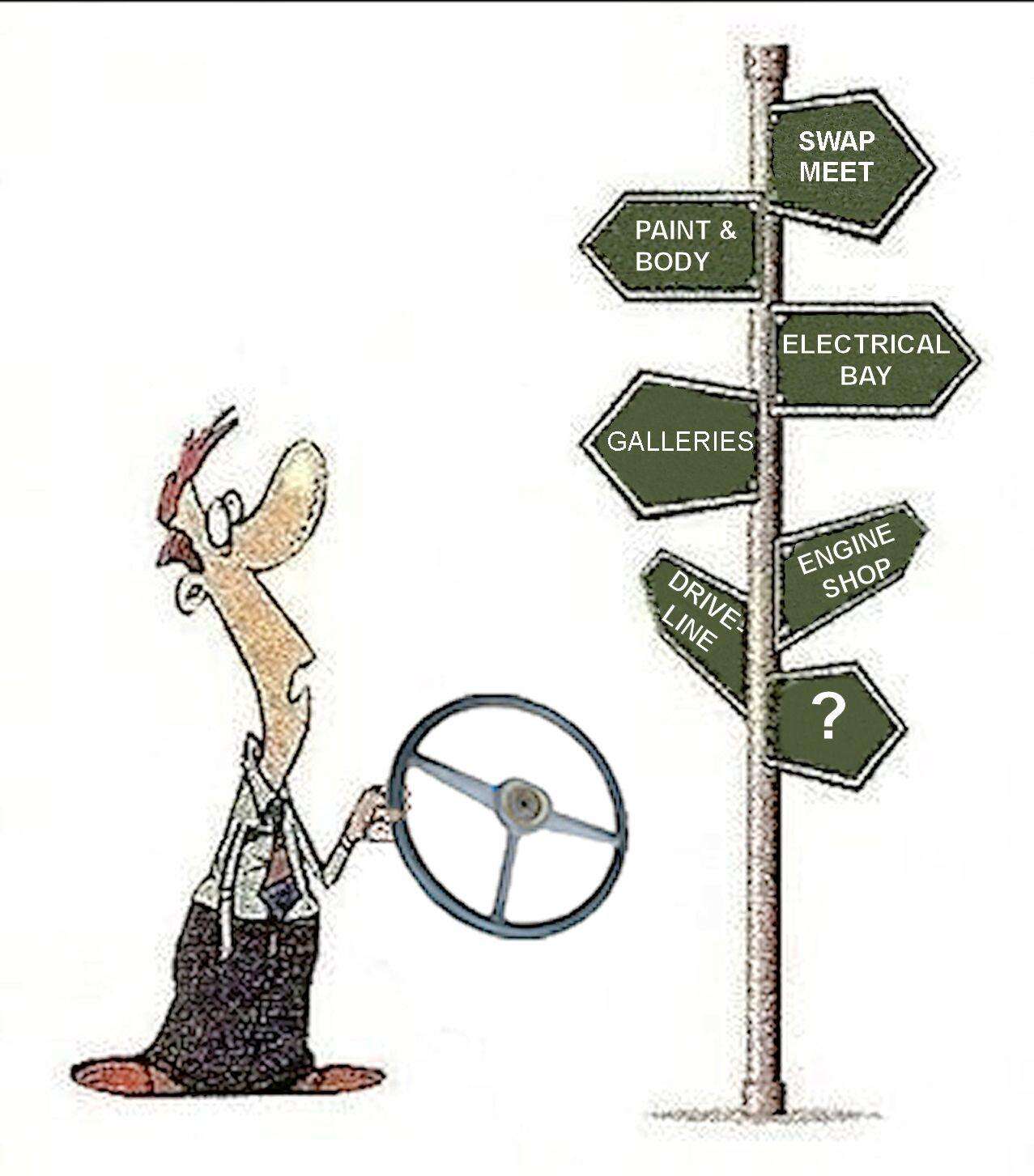BUSY BOLTERS Are you one?  The Shop Area The Shop Area
continues to pull in the most views on the Stovebolt. In August alone there were over 22,000 views in those 13 forums.
| | Click on image for the lowdown. 
====
| | | Forums66 Topics126,776 Posts1,039,271 Members48,100 | | Most Online2,175
Jul 21st, 2025 | | | | Joined: Sep 2015 Posts: 89 Shop Shark | | Shop Shark Joined: Sep 2015 Posts: 89 | i have a 1961 235 engine in my 1946 truck im fixing up...as of now I have a carter YF 1 barrel on it that was on the 261cid engine the truck had in it...I also have (needs rebuilt) the Rochester 1bbl carb that was on the 235 that came out of a 1961 c30. Would the original carb for the engine probably work best?
The carter YF has some funky linakge that im having trouble rigging to work, i think from what i read i'll need to fab a bracket to make the throttle pivot pin an inch or so father forward on this newer 235, but the rochester still seems like it would work better in regards to the linkage..
other downside to the rochester is i wont be able to use my original oil bath filter...
any help with carb choice and or pictures of throttle linkage for later 235 in a 1946 truck would be greatly appreciated!
1946 Chevrolet 2-ton
| | | | | Joined: Dec 2003 Posts: 1,060 'Bolter | | 'Bolter Joined: Dec 2003 Posts: 1,060 | I am a dyed in the wool supporter of the YF. Can't envision exactly what you are describing about the linkage, but there has to be a reasonable solution.
1946 1-ton Panel
1952 1-ton Comml. W/Grain Body
| | | | | Joined: Aug 2004 Posts: 1,400 ODSS Lawman | | ODSS Lawman Joined: Aug 2004 Posts: 1,400 | I'd use the YF. I too do not quite understand the issue with the linkage. Can you post pictures?
I have a dual carb setup. I replaced my Rochesters with the YF's. They were a direct plug in for me. Not alterations to fuel lines, linkages, vacuum lines, nothing.
SWEET Sergeant At Arms: Old Dominion Stovebolt Society BUNS?!?!?!Where we're going, we don't need no buns.....1950 GMC 450 1951 Chevy 1/2-TonThe GreenMachineIn the Stovebolt Gallery | | | | | Joined: May 2006 Posts: 8,351 'Bolter | | 'Bolter Joined: May 2006 Posts: 8,351 | I'm in agreement, the YF should be a direct bolt on with virtually no alterations necessary. I also second SWEET, pics would be very helpful in determining what issue you have with the linkage and a possible solution.
Bill Burmeister
| | | | | Joined: Sep 2015 Posts: 89 Shop Shark | | Shop Shark Joined: Sep 2015 Posts: 89 | I'll get some pictures tomorrow hopefully, I may be missing some of the linkage, when the 261 was in the truck it had the thottle hooked up but had a funky bracket from the carb to the actual throttle linkage.
I'd love to just keep the YF if possible since I already rebuilt it and got it more or less adjusted, I'd also love to hook up the cable throttle if I knew how since the truck is a 2ton with a PTO and a dump bed.
Also is it normal to get alot of condensation on the bottom of the carb? I thought i had a fuel leak but it appears to just be water, while running up the engine in the garage i always seem to get alot of water around the carb base on the outside.
1946 Chevrolet 2-ton
| | | | | Joined: Aug 2004 Posts: 1,400 ODSS Lawman | | ODSS Lawman Joined: Aug 2004 Posts: 1,400 | You need an insulator between the carb and the intake. That will minimize the water from carb icing.
May also be why your linkage does not line up.
SWEET Sergeant At Arms: Old Dominion Stovebolt Society BUNS?!?!?!Where we're going, we don't need no buns.....1950 GMC 450 1951 Chevy 1/2-TonThe GreenMachineIn the Stovebolt Gallery | | | | | Joined: Nov 2002 Posts: 2,715 Carburetion specialist | | Carburetion specialist Joined: Nov 2002 Posts: 2,715 | The vaporization of fuel is an endothermic process. As fuel is converted from a liquid to a gaseous state, heat must be added. This heat is removed from whatever is closest, in this case the throttle body. As the air is also cooled, water may condense from the air on the surrounding surface(s), and in severe cases cause icing.
GENERALLY, this condition is indicative of too large a carburetor (lower venturi air velocity) or too rich a mixture (possibly a choke not working, or no heat to the carburetor).
Inline engines are significantly more susceptible to condensation/icing than V's as carbs on V's normally reside above the valley where there is more heat.
If the installation is an integral automatic choke, some inline installations have a heat baffle in front of the integral choke to protect the choke from air movement from the fan, which could cool the choke to the point where the choke doesn't obtain the "off" position.
Would be nice to know which YF you have; Carter made hundreds of different ones for engines from 130 CID to 331 CID. One size does not fit all.
Jon.
Good carburetion is fuelish hot airThe most expensive carburetor is the wrong one you attempt to modify. If you truly believe "one size fits all," try walking a mile in your spouse's shoes!The Carburetor Shop | | |
|
|